NILOA Staff & Associates
NILOA Staff
Gianina Baker, Acting Director
NILOA Fellows
Nan Travers, NILOA Fellow, Director of the Center for Leadership for Credentialing Learning, SUNY Empire State College
Erick Montenegro, NILOA Fellow, Director of Communications for the Credential Engine
Verna F. Orr, NILOA Fellow, Special Assistant to the President for Planning and Institutional Effectiveness at Benedict College
NILOA Senior Scholars
George Kuh, Founding Director, Senior Scholar, and Chancellor’s Professor Emeritus of Higher Education – Indiana University, Bloomington
Peter Ewell, Senior Scholar, President Emeritus of the NCHEMS
Pat Hutchings, Senior Scholar
Stan Ikenberry, President Emeritus, University of Illinois
Jillian Kinzie, Senior Scholar, Associate Director of Indiana University’s Center for Postsecondary Research
Paul Lingenfelter, Senior Scholar and President Emeritus, State Higher Education Executive Officers Association (SHEEO)
David Marshall, Senior Scholar, Professor and Director of the University Honors Program, California State University San Bernardino
NILOA Endorsed Speakers (previously known as NILOA Coaches)
Sandra Bailey, Oregon Institute of Technology
Laurie G. Dodge, Brandman University
Tami Eggleston, McKendree University
Laura M. Gambino, New England Commission of Higher Education
Paul Hanstedt, Washington and Lee University
Errin Heyman, National University
Joseph D. Levy, Excelsior University
Dan McInerney, Utah State University
Brad Mello, Saint Xavier University
Stephanie Poczos, National Louis University
Nancy Quam-Wickham, California State University-Long Beach
Ruth C. Slotnick, Bridgewater State University
Shontell Stanford, Interdenominational Theological Center
Laura Avitabile Wankel, Northeastern University
Ereka R. Williams, Winston-Salem State University
NILOA Staff
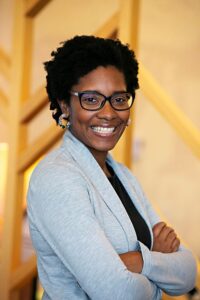
Gianina Baker, Acting Director, provides leadership and directs research specific to the assessment of student learning at colleges and universities, primarily under the Lumina Foundation grants, at NILOA. Her main research interests include student learning outcomes assessment at Minority Serving Institutions, access and equity issues for underrepresented administrators and students, assessment in athletics, and higher education policy. She holds a Ph.D. in Educational Organization & Leadership with a Higher Education concentration from the University of Illinois, a M.A. in Human Development Counseling from Saint Louis University, and a B.A. in Psychology from Illinois Wesleyan University. Previous to this position, she was the Director of Institutional Effectiveness & Planning at Richland Community College.
NILOA Fellows
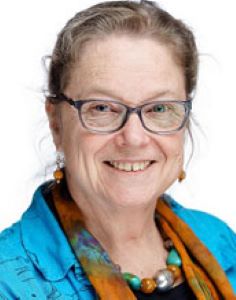
Dr. Nan L. Travers, is a NILOA Fellow and serves as the Director of the Center for Leadership for Credentialing Learning at SUNY Empire State College. Dr. Travers focuses on research, policies and practices of the recognition, validation and credentialing learning, including prior learning assessment, competency-based learning, and microcredentialing. She is widely published nationally and internationally. She has worked with many institutions to develop or improve their prior learning assessment program. She led the development of the Global Learning Qualifications Framework to assess college-level learning acquired outside of the traditional academic setting. She serves on the board for the Prior Learning International Research Consortium and is a member of the national Connecting Credentials Initiative sponsored by the Lumina Foundation and led by the Corporation for a Skilled Workforce. She serves as co-editor for the journal: PLA Inside Out: An International Journal on the Theory, Research, and Practice in Prior Learning Assessment (www.plaio.org). Dr. Travers has also served in various administrative roles at community colleges in VT and NH.
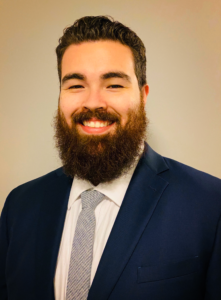
Erick Montenegro, is a NILOA Fellow and serves as the Director of Communications for the Credential Engine. Erick focuses on the intersection of equity and assessment and conducts timely assessment research to better support students of color in higher education. His work informs equity-minded assessment practice, and is a leading voice in this movement. Erick serves on the board of the Quality Assurance Commons for Higher and Postsecondary Education. Erick is a doctoral candidate in the Education Policy, Organization and Leadership program at the University of Illinois. Erick received a dual B.S. in Marketing and Business Administration with a concentration in International Business, and an Ed.M. in Education Policy, Organization and Leadership with a concentration in Higher Education both from the University of Illinois.
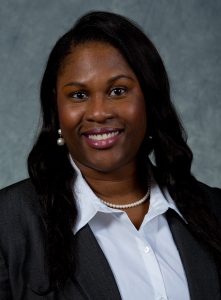
Verna F. Orr is a NILOA Fellow and serves as Special Assistant to the President for Planning and Institutional Effectiveness at Benedict College. Verna’s research agenda focuses on assessment, accountability, and student learning outcomes and centers Historically Black Colleges & Universities (HBCUs). She is co-Founder of the HBCU Collaborative for Excellence in Educational Quality Assurance (HBCU-CEEQA). In her role as Special Assistant, she is responsible for oversight of the College’s Strategic Plan and provides coaching, training, and development of strategies to ensure a culture of assessment. Verna is a three-time graduate of Howard University in Washington, DC. where she also served as Confidential Assistant to the 16th President and holds a Ph.D. in Higher Education from the University of Illinois at Urbana-Champaign.
NILOA Senior Scholars
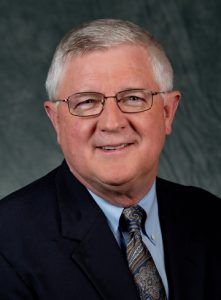
George Kuh, Founding Director and Senior Scholar, has published more than 300 items (23 books and monographs, 75 chapters, 220 articles), and is an internationally recognized authority on assessment and improving the quality of the undergraduate experience. He has received numerous awards for his research and academic leadership from both scholarly and practitioner-based organizations. Chancellor’s Professor Emeritus of Higher Education at Indiana University, Kuh directed the IU Center for Postsecondary Research between 1999 and 2010, which attracted more than $11 million in grants and contracts during this period. He was principal or co-principal investigator for projects that accounted for $9.5 million of that work, including $3.9 million from the Pew Charitable Trusts to develop and implement the National Survey of Student Engagement (NSSE), which has been used by about 1,400 four-year colleges and universities in the U.S. and Canada. Kuh also has provided leadership for the development and use of other large-scale institutional improvement tools including the Faculty Survey of Student Engagement, the Law Student Survey of Student Engagement, the College Student Experiences Questionnaire Assessment Program, and the Strategic National Arts Alumni Project. In addition, Kuh has directed several multi-institutional studies using qualitative case study methods, two of which resulted in major books (Involving Colleges, 1991; Student Success in College, 2005/2010).
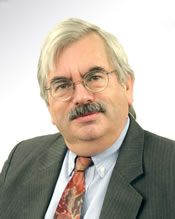
Peter Ewell, Senior Scholar, is also President Emeritus of the National Center for Higher Education Management Systems (NCHEMS). Ewell’s work focuses on assessing institutional and higher education system effectiveness and the outcomes of college, and involves both research and direct consulting with institutions and state systems on collecting and using assessment information in planning, evaluation, and budgeting. He has direct initiatives funded by the W. K. Kellogg Foundation, the National Institute for Education, the Consortium for the Advancement of Private Higher Education, the Pew Charitable Trusts. In addition, he has consulted with over 375 colleges and universities and twenty-four state systems of higher education on topics related to performance indicators and the assessment of student learning. Dr. Ewell has authored seven books and numerous articles on the topic of improving undergraduate instruction through the assessment of student outcomes. In addition, he has prepared commissioned papers for many agencies including the Education Commission of the States, the National Governors Association, the National Conference of State Legislators, and the National Center for Public Policy in Higher Education. A graduate of Haverford College, he received his Ph.D. in Political Science from Yale University in 1976 and was on the faculty of the University of Chicago.
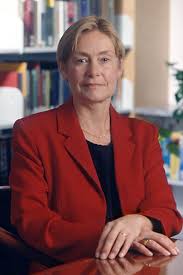
Pat Hutchings, Senior Scholar. Her work has focused on a variety of strategies for creating a campus culture of teaching and learning: student learning outcomes assessment, integrative learning, the peer collaboration and review of teaching, and the scholarship of teaching and learning. Recent publications include The Scholarship of Teaching and Learning Reconsidered: Institutional Integration and Impact, co-authored with Mary Taylor Huber and Anthony Ciccone (2011); and, as part of the NILOA team, Using Evidence of Student Learning to Improve Higher Education (2015). Previously, she was with the Carnegie Foundation for the Advancement of Teaching as senior scholar and vice president, working closely with a wide range of programs and research initiatives, including the Carnegie Academy for the Scholarship of Teaching and Learning. Hutchings received her doctorate in English from the University of Iowa, was chair of the English department at Alverno College from 1978 to 1987, and a senior staff member at the American Association for Higher Education from 1987 to 1997.
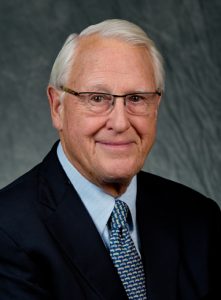
Stan Ikenberry, President Emeritus of the University of Illinois, has had a long and visible career in American higher education as an academic leader and student of higher education policy. He held major academic and administrative posts at West Virginia University and Penn State University prior to serving as president of the University of Illinois from 1979-1995 and 2010. Ikenberry worked closely with and led the boards of the Carnegie Foundation for the Advancement of Teaching, AAU, and NASULGC. From 1996 through 2001 he served as president and chief executive officer of the American Council on Education, where he served as the national spokesperson on public policy issues related to higher education on the national level. Relevant to the particular focus of this proposal, Ikenberry is experienced in the workings of accreditation and served as co-chair of the President’s Work Group on Accreditation that recommended to the national higher education community the founding of the Council for Higher Education Accreditation. CHEA and other accreditation groups and higher education associations have become increasingly engaged with the challenge of assessment of learning outcomes at the collegiate level.
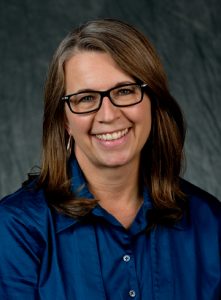
Jillian Kinzie, Senior Scholar and Associate Director of Indiana University’s Center for Postsecondary Research & NSSE Institute, provides support to various elements of NILOA’s project and case study efforts. In her role as associate director of the NSSE Institute for Effective Education Practice, she has worked with dozens of campuses to develop assessment strategies and advise on using the data to improve student learning. She was the co-principal investigator on the Teagle-funded project to evaluate the efficacy of its investment in supporting the development and use of assessment instruments in liberal arts college settings.
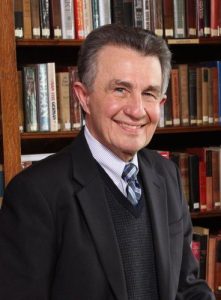
Paul Lingenfelter, Senior Scholar, is President Emeritus of the State Higher Education Executive Officers (SHEEO). His work focused on successful participation in higher education, accountability, and finance. Under his leadership, SHEEO organized and staffed the National Commission on Accountability in Higher Education, which in March 2005 issued its report:Â Accountability for Better Results: A National Imperative for Higher Education. He previously served as Vice President of the John D. and Catherine T. MacArthur Foundation, where he established and led the MacArthur Foundation Program on Human and Community Development. Earlier, Dr. Lingenfelter served as Deputy Director for Fiscal Affairs for the Illinois Board of Higher Education. He received an A.B. from Wheaton College in literature, an M.A. from Michigan State University, and a Ph.D. from the University of Michigan in higher education.
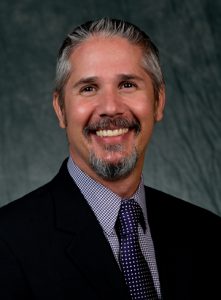
David Marshall, Senior Scholar, Professor of English and Director of the University Honors Program at California State University San Bernardino. He facilitated the Lumina Foundation-funded Tuning projects nationally from 2010 to 2016, working with states, regions and national disciplinary associations to identify essential learning within disciplines and develop strategies for campus-based engagement with the resulting learning outcomes. His research, taken from a practitioner lens, explores issues of alignment and curriculum mapping as a complex collaborative process in higher education, both within institutions and across institutions nationally. He is co-author of Degrees That Matter: Moving Higher Education to a Learning Systems Paradigm, the author of Tuning American Higher Education: The Process and co-author of Roadmap to Enhanced Student Learning and co-editor of a special volume of New Directions in Institutional Research on Degree Qualifications Profile (DQP) and Tuning. A graduate of College of the Holy Cross, he earned his Master’s degree in Medieval Studies from the University of York, England and his Ph.D. in English from Indiana University.
NILOA Endorsed Speakers
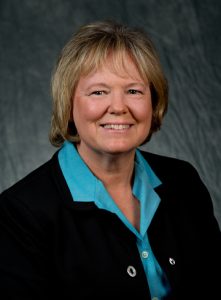
Sandra Bailey is professor of business management at Oregon Institute of Technology. She is also the former director of academic excellence at Oregon Tech. During her seven-year tenure as director she guided the institution from an accountability focus to an improvement orientation coordinating assessment with curricular design and faculty professional development. At Oregon Tech she also led a task force in a comprehensive general education review using assessment results and the Degree Qualifications Profile to guide the redesign of general education. Oregon Tech’s new Essential Studies program is an integrated general education program with clear alignment to institutional student learning outcomes. Bailey served on the steering committee of the Multi-State Collaborative to Advance Quality Student Learning (MSC), serves as a reviewer for the Excellence in Assessment designation, and was the Oregon state lead for AAC&U’s Faculty Collaboratives project. She has organized statewide faculty conferences in Oregon and facilitated assignment design workshops with faculty across the country.

Laurie G. Dodge is the vice chancellor of institutional assessment and planning and vice provost at Brandman University. She oversees program assessment and program review, new and revised curriculum, state authorization, and helped lead the creation of the institutional learning outcomes using the DQP framework. Dr. Dodge is serving as the President of the Board of Directors for the Competency-Based Education Network (C-BEN) and has served on Congressional briefings on competency-based education. She is on the advisory board for Entangled Solutions and has participated in national higher education initiatives including the Quality Assurance Commons for Higher and Postsecondary Education, Comprehensive Student Record, and Credential Engine. Dr. Dodge serves as Brandman University’s Accreditation Liaison Officer and conducts national workshops on CBE design, assessment, and educational journey.
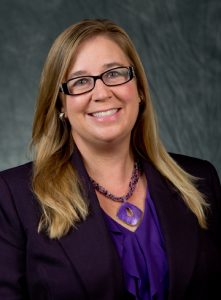
Tami Eggleston is professor of psychology and associate dean for institutional effectiveness at McKendree University in Lebanon, Ill. She is the coordinator of the Teaching for Excellence (T4E) faculty-development program and is also a Higher Learning Commission (HLC) peer reviewer. Eggleston regularly presents at conferences and campuses on a variety of topics, including student learning outcomes, assessment tools and best practices, rubrics, data use, assessment-plan design, strategic planning, engaged teaching, technology use, online and blended learning, and team building.
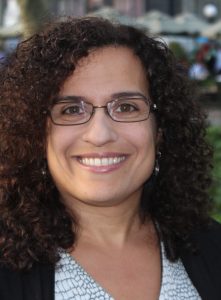
Laura M. Gambino is the Vice President of New England Commission on Higher Education. She previously served as associate dean for assessment and technology and professor of information technology at Guttman Community College (CUNY). In her role as associate dean, Gambino oversaw assessment of Guttman’s institutional student learning outcomes, periodic program reviews, and assessment of programs such as Summer Bridge, global learning, and academic support. Gambino, a leading ePortfolio practitioner and researcher, also oversaw the college’s institution-wide ePortfolio program, leads the Integrated Planning and Advising for Student Success (iPASS) project, has presented nationally and internationally, and regularly serves as a consultant to higher education institutions.
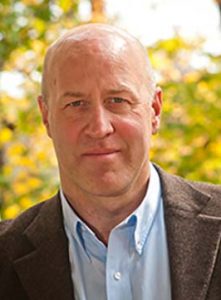
Paul Hanstedt is Director of CARPE. Prior to his position at Washington and Lee University, Paul served as the Director of Pedagogical Innovation and the Teaching Collaborative at Roanoke College, where he led the revision of a campus-wide general education program, developed an innovative writing-across-the-curriculum program, and coordinated the implementation of the college’s e-portfolio system. He is the recipient of several teaching awards, received a Fulbright to aid general education curricular revision in Hong Kong, and is co-recipient of a FIPSE grant for sustainable faculty development. He is the author of several books on faculty and curricular development, including General Education Essentials and Creating Wicked Students.
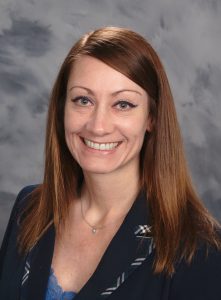
Errin Heyman is the Associate Vice President of Learning Experience with National University. Over her 25 years in higher education, she has served as Vice President of Strategy and Innovation with Reach University and the Director of Assessment and Educational Effectiveness at the California Institute for Advanced Management; she led the Initiative for Advancing Leadership for and Visibility in Student Learning Outcomes Assessment at the WASC Senior College and University Commission (WSCUC); and has been an instructor in Park University’s Master in Education program, in addition to other consultant-based projects. Errin has served as the Dean of Educational Effectiveness at the University of St. Augustine for Health Sciences and was the founder of the Center for Excellence in Learning, Teaching, and Assessment at West Coast University. She also spent multiple years at eCollege, a learning management system vendor, where she led the academic consulting and training team. Errin holds an Ed.D. in Higher Education Leadership, with a focus on Curriculum and Instruction; an MA in Teaching of Writing; and a BA in English Writing.

Joseph D. Levy serves as the Associate Vice Provost of Accreditation and Quality Improvement at Excelsior University. His research interests and passions revolve around promoting data-informed decision making and data use across campus. Joe is a member of the Student Affairs Assessment Leaders (SAAL) Board of Directors and co-teaches a recurring open course on leading student affairs assessment. With assessment experience at multiple institutional types, Joe is always happy to talk assessment practice and strategy. Joe holds an Ed.D in Higher Education Leadership from National Louis University, an MS in Student Affairs in Higher Education from Colorado State University, and a BA in English from Baldwin Wallace University.
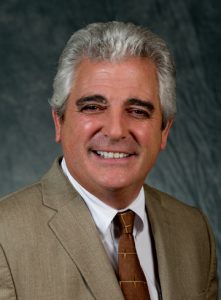
Dan McInerney is professor of history at Utah State University. He has been part of statewide DQP/Tuning work in Utah, serves as senior advisor on the American Historical Association’s Tuning Project, holds editorial positions with Liberal Education and the Tuning Journal for Higher Education, and has delivered presentations on the Degree Qualifications Profile and Tuning at conferences and campuses across the U.S. (as well as in the E.U., Brazil, and Japan). He holds a doctorate in American Studies-History from Purdue University.

Brad Mello is Professor and Chair of the Communication department and a member of the University wide general education committee at Saint Xavier University in Chicago, IL. He was a team leader and the grant author for the National Communication Association’s student learning outcomes DQP/Tuning project. He received his BA and MA in Speech Communication from Penn State University and his Ph.D. in Communication from the University of Oklahoma.
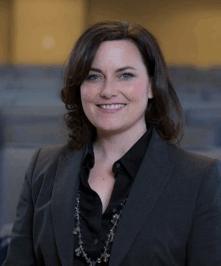
Stephanie Poczos is the associate dean of general education and pathways associate professor at National Louis University. She was one of the principle designers of the pathways program, which is an affordable and adaptive undergraduate program that provides comprehensive, personalized support for students of any socioeconomic status. The Pathways Program utilizes the Degree Qualifications Profile in 3 tracks of study with 35 customized competencies built and aligned inside of problem-based assessments in the courses. Stephanie has worked in many areas of NLU, most notably designing and implementing the B.A. in Applied Communications program. She has taught and developed courses at a variety of universities, including Charter Oak State College, which was one of the first colleges to utilize a competency-based learning model. Stephanie holds an Ed.S. in Educational Leadership and a Master of Arts in Teaching from National Louis University, and a Bachelor of Arts in Communications from the University of Iowa.
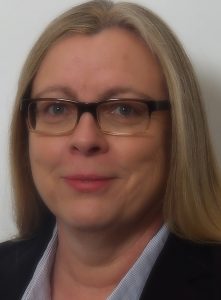
Nancy Quam-Wickham is Professor of History and Chair (Emerita, 2005-2015) at California State University-Long Beach. Prior to this, she was the editor of The History Teacher journal. She has participated in the American Historical Association’s Tuning project, the SSRC’s Measuring College Learning Project, and other initiatives. She is now a Senior Assessment Specialist at Washington State University. She has particular interests in program assessment, general education, assignment design, and as a Quality Matters certified reviewer, in online education. She holds a bachelor’s degree from San Francisco State University and a doctorate in history from the University of California-Berkeley.
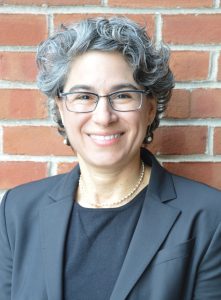
Ruth C. Slotnick is the director of assessment at Bridgewater State University (BSU), the largest comprehensive teaching university in Southeastern Massachusetts offering 82 academic degree pathways. Two-thirds of the 9,000 undergraduates identify as students of color, low-income, and/or first-generation students, and over half have transferred from community colleges. Ruth oversees Core Curriculum assessment and assists faculty with program-level assessment. She was a co-investigator on a three-year AAC&U Quality Collaborative grant focusing on the alignment of student learning outcomes at two-and four-year institutions using the DQP the AAC&U LEAP VALUE rubrics. Ruth holds a Ph.D. in Higher Education from the University of South Florida and a M.Ed. in Art Education from Pennsylvania State University.

Shontell Stanford serves as Institutional Learning Director for the Interdenominational Theological Center. She previously served as the Curriculum Manager for the division of Graduate Education in Biomedical Sciences at Morehouse School of Medicine (MSM). She also serves as the Director of Programs and Operations for the HBCU Collaboration in Educational Excellence and Quality Assurance (HBCU-CEEQA). Ms. Stanford has over 15 years of experience as an assessment and accreditation compliance professional with a proven track record in assessment plan development, program review, course evaluations, curriculum development, assessment mapping, and implementing assessment technology tools. Ms. Stanford has experience in reporting to Southern Association of Colleges and Schools Commission on Colleges (SACSCOC), Transnational Association of Christian Colleges and Schools (TRACS) and Liaison Committee on Medical Education (LCME). Before joining MSM, Ms. Stanford was the Assistant Director of Programs and Curriculum Management at Emory University School of Medicine. Ms. Stanford enjoys scholarly engagement and has presented at several local and national conferences such as the Southern Group on Educational Affairs, and the National Council on Measurement Education. Ms. Stanford earned a Bachelor of Science in Human Relations, a Master of Education-Instructional Design and is pursuing a Doctorate in Higher Education Administration-Education Leadership.
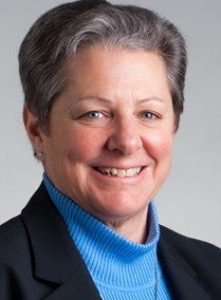
Laura Avitabile Wankel is the Interim Vice Chancellor for Learner Engagement at Northeastern University, where she previously served as Vice President for Student Affairs and Senior Advisor for Strategic Initiatives to the Senior Vice Chancellor for Educational Innovation. Prior to Northeastern University, Dr. Wankel was at Seton Hall University where she served as Vice President for Student Affairs beginning in 1995. She has been an active member in NASPA: Student Affairs Administrators in Higher Education at both the regional and national level in a number of leadership positions including Regional Vice President, Executive Committee and Chair of the NASPA Board. Dr. Wankel has served in a consulting capacity to a number of education-related projects, including, Learn and Serve America and the Corporation for National and Community Service (AmeriCorps), NASPA, and the American Association of Collegiate Registrars and Admissions Officers (AACRAO) and has worked on the Lumina Foundation Funded Comprehensive Student Record Project. She holds a bachelor’s degree in American History from SUNY Oneonta where she graduated magna cum laude, an M.Ed. from the University of South Carolina and an Ed.D. in higher education administration from Teachers College, Columbia University.
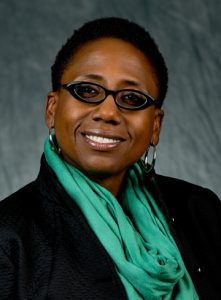
Ereka R. Williams is the associate dean of the education, quality assurance, and community engagement at Winston-Salem State University. Previously, Dr. Williams was associate dean of the College of Education at Fayetteville State University, and prior to Fayetteville State, served as an associate professor in the College of Education at North Carolina Agricultural and Technical State University in Greensboro, NC. At North Carolina A&T State University, she also served as the lead for the newly established Department of Administration and Instructional Service and had the positions of chairperson of the Department of Curriculum and Instruction from 2014-2017 along with a host of service and leadership positions across the campus earning her the University’s Outstanding Teacher of the Year award in 2013-14. Williams co-chaired the University’s Lumina Degree Qualifications Profile Pilot Project resulting in an invitation to participate on the Lumina DQP/HBCU pilot project at the Southern Association for Accreditation of Colleges and Schools Commission on Colleges. Her prior experience with general education assessment includes alignment and curriculum mapping. She holds a doctorate in curriculum and instruction-teacher education from the University of North Carolina.

